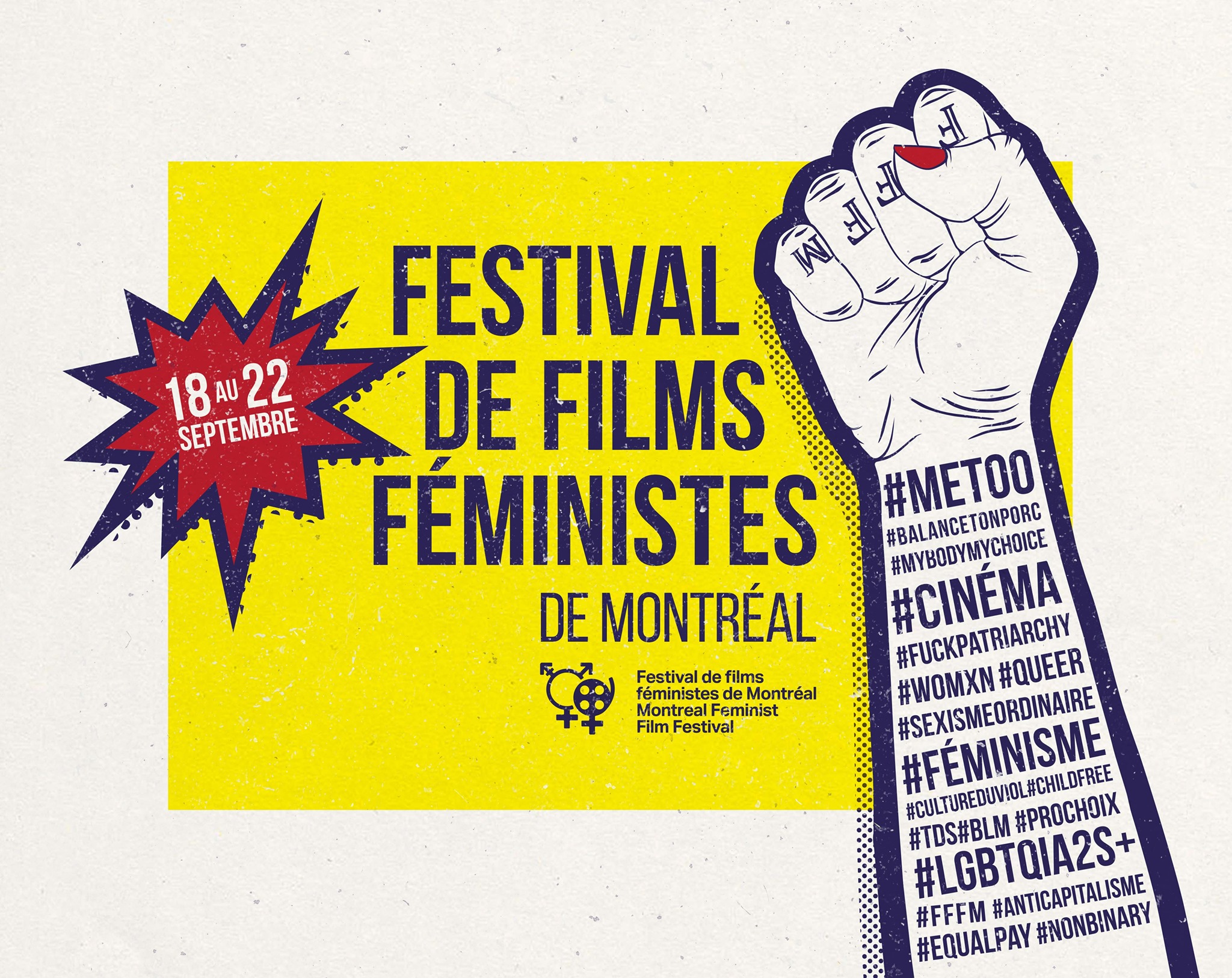On Sept. 22, the last evening of the third annual Festival de films féministes de Montréal (FFFM), a crowd filled the sidewalk outside the small second-floor venue shared by Association des réalisateurs et réalisatrices du Québec (ARRQ). Patrons waited anxiously for the evening screening to begin. Word was that the evening was sold out, and the wait list was already long. In pairs and solo, hopeful viewers buzzed with anticipation as they waited for the door to be opened.
FFFM was founded in 2016 to provide a platform for feminist films and filmmakers of all kinds. Emphasizing cultural diversity, the festival prioritizes intersectionality and seeks to represent multiple feminist perspectives. Yet the festival, though obviously embraced by the public and a unique boon to participating filmmakers, is donation-based and volunteer-driven. These volunteers take on huge responsibilities. Magenta Baribeau, a founder and organizer of the festival that does the jobs of three people at once in hopes that the festival will return bigger than ever in 2020.
Narratives that are often marginalized are included within the wide range of films and types of feminism. Though all feminist, some films focused on queer perspectives; a genre night included horror submissions. The feminist messages, however, allowed many to connect with the films in a deeply personal way.
The Sunday evening screening featured a number of shorts themed around the interaction of racial identity and feminism.
The Tigresse Masque dir. Gowri Neelavar (India)
Based on a poem, this lyrical short is set at a Hindu festival which takes place in the state of Karnakata. Young men in dramatic costume perform as tigers, a religiously significant animal in India that was hunted by British colonizers. Playing on the religious context and youthful nostalgia, //The Tigress Masque// presents this childhood fairytale as larger-than-life, but dreamed of by a little girl watching in the crowd. When she dons the mask, it’s a rebellion against both the patriarchy holding her back and the history of colonization restricting her country.
Brother, Move On dir. Antshi von Moos (India, Switzerland)
Moos’ documentary looks at the life of a female taxi driver in New Delhi. By casting her sister as her main interviewee, Moos presents the audience with an intimate and complex portrait of a remarkable woman. Her livelihood depends on her assuming a culturally masculine role every time she gets behind the wheel of her taxi.
Me Time dir. Eléonore Coyette (USA)
A crowd favourite, this American comedic soliloquy’s protagonist has a conversation with multiple versions of herself about masturbation. Written by and starring Eléonore Coyette, a Black woman, the film is unapologetic, self-reflective and true to life. The conversations featured in the short speak to the many voices informing every woman’s idea of how she should act. But it is also about embracing every one of them, and thereby coming to an empowering conclusion.
Skies Are Not Just Blue dir. Lysandre Cosse-Tremblay (Haiti)
Third-year UQÀM student Lysandre Cosse-Tremblay submitted this short documentary. It introduces us to four queer Muslims: Yara, a Toronto-based artist and activist; brothers Monib and Tariq, who make Youtube videos together; and the anonymous A., who, filmed only from the back, describes the challenges to and subsequent rejection of his faith when he first arrived in Montreal. In an interview after the screening, Lysandre described coming to their subjects with a camera in hand but no preconceptions, refusing to put words in people’s mouths.
On the final night of the festival, Baribeau was a tornado of efficiency, selling tickets, conferring with volunteers to keep the screening on track, dashing into the hall to find–always successfully–one more seat for the last eager stragglers in. Then, as the lights dimmed for the last time on the 2019 edition of FFFM, she welcomed viewers to the space in English and French and thanked the community for showing its support.
Festival de films féministes de Montréal 2019 ran from Sept. 18-22.









